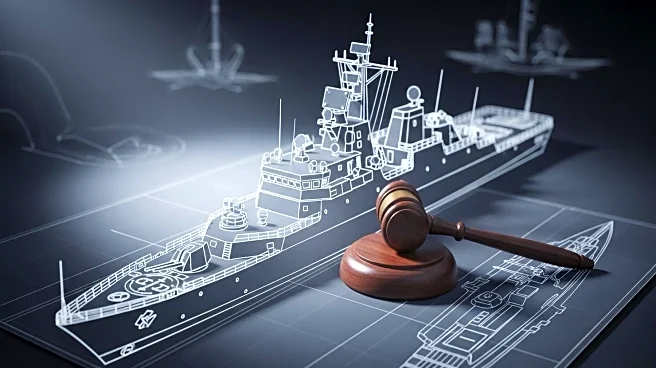What's Happening?
Senator Tim Sheehy, a member of the Senate Armed Services Committee, has criticized the Navy's approach to shipbuilding, suggesting that its control over the process is detrimental to efficiency and cost-effectiveness. During a Center for Strategic and International Studies event, Sheehy argued that the Navy lacks the necessary institutional knowledge to manage shipbuilding effectively, advocating for a shift in control to industry experts. He emphasized the need for the Navy to stabilize specifications and reduce change orders to lower costs and increase production speed. Sheehy believes that by allowing industry to manage the build process, the Navy could see increased quantity and reduced prices. This perspective aligns with recent executive orders from the White House aimed at accelerating defense acquisitions and shipbuilding.
Why It's Important?
The senator's remarks highlight ongoing challenges in defense acquisition and the need for reform to enhance the U.S. military's capabilities. By advocating for industry-led shipbuilding, Sheehy suggests that the Navy could benefit from increased competition and innovation, potentially leading to faster and more cost-effective production. This approach could also broaden the supplier base, encouraging more private sector involvement and reducing reliance on a few large defense contractors. The implications of these changes are significant for the U.S. defense industry, potentially leading to a more agile and responsive military infrastructure.
What's Next?
The call for reform in shipbuilding may prompt further discussions and actions within the Pentagon and Congress to reevaluate current acquisition processes. As the Navy considers restructuring its drone-acquisition strategy, similar changes in shipbuilding could follow. Additionally, Senator Tim Kaine has suggested that the U.S. should increase its defense budget to match NATO allies' spending, which could further support the maritime industrial base. These developments may lead to increased collaboration with allies and a reevaluation of defense spending priorities.
Beyond the Headlines
The broader implications of this shift could affect international relations, particularly in terms of defense collaboration with allies. By sharing maintenance and repair work, the U.S. could strengthen ties with partner nations, enhancing collective security efforts. Furthermore, increased private sector involvement could drive innovation in shipbuilding, potentially leading to technological advancements and improved military capabilities.








